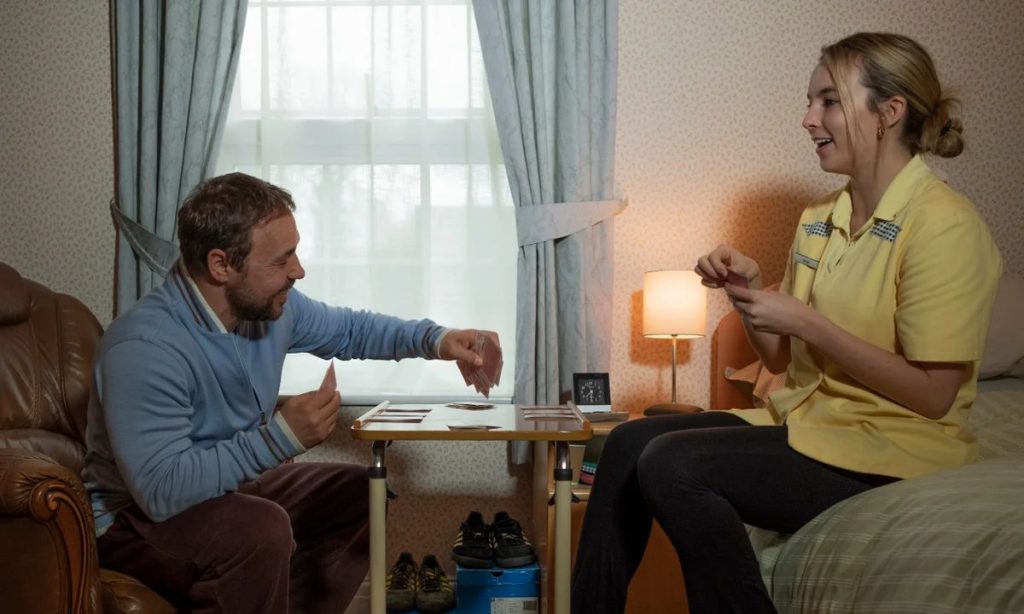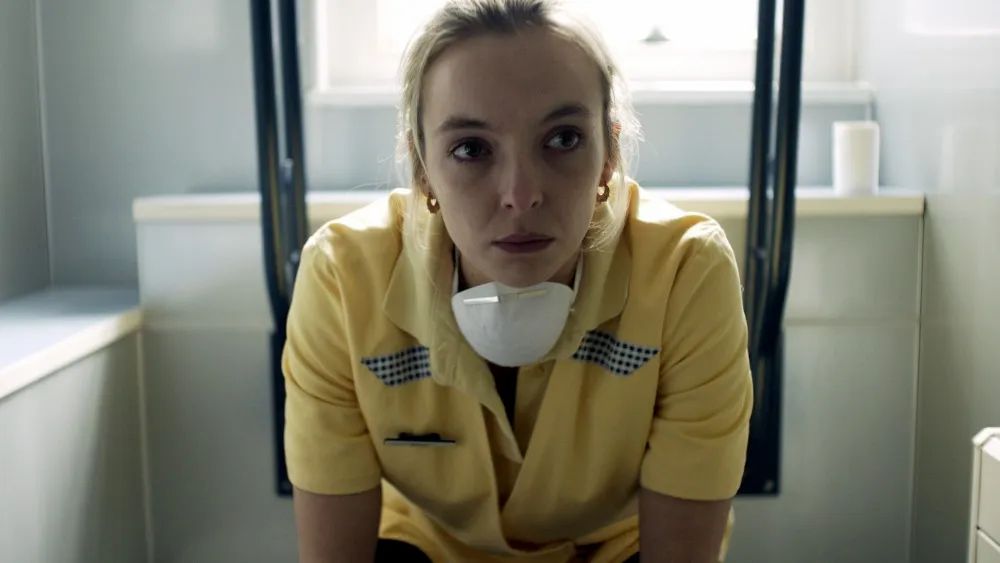“Help” (2021): A Raw, Heartbreaking Look at a Pandemic-Ravaged Nursing Home
Starring Stephen Graham & Jodie Comer

Help is a poignant and emotional British drama that dives deep into the suffering, isolation, and unseen heroism that defined the height of the COVID-19 pandemic. Written by Jack Thorne and directed by Marc Munden, the 2021 television film unfolds within a Liverpool nursing home—where the virus strikes hardest, and the most vulnerable are left behind. Starring two of Britain’s most compelling actors, Jodie Comer and Stephen Graham, Help is both an emotional gut punch and a haunting tribute.
Jodie Comer stars as Sarah, a compassionate and idealistic young care assistant who begins working at the home just before the pandemic. From her first days on the job, Sarah demonstrates warmth, empathy, and an intuitive understanding of her patients. One of those patients is Tony, played with heartbreaking depth by Stephen Graham—a man in his 40s suffering from early-onset Alzheimer’s disease.
The Heart of the Story: Sarah and Tony’s Bond
Sarah quickly forms a deep and touching bond with Tony. This is not a romantic connection, but something perhaps even more profound: a human connection grounded in compassion and trust, forged in the middle of crisis.
For Sarah, Tony becomes more than just a patient—he is someone she truly sees, beyond the confusion and cognitive decline. She recognizes his dignity, his humor, his quiet vulnerability. In a world where even basic care is increasingly difficult, she refuses to let him disappear.
For Tony, Sarah becomes an anchor. As his memory fragments and the world becomes increasingly unfamiliar, Sarah is his safe place—a source of calm and consistency in an otherwise terrifying reality. Their relationship is a rare moment of light in the film: a reminder that empathy can survive even when systems fail.
Why Their Relationship Matters
Set against the backdrop of a care system overwhelmed and often abandoned, the connection between Sarah and Tony rises like a quiet act of rebellion. It challenges the viewer to rethink the boundaries between caregiver and patient, and to reflect on what it truly means to care for someone.
At a time when PPE is scarce, when protocols change daily, and when lives hang in the balance, Sarah and Tony’s bond is a fragile yet powerful testament to humanity. It is a symbol of kindness in chaos, of love in unexpected places, and of the small ways in which people save each other.
The Brutal Truth Behind “Help”

Beyond the personal story, Help doesn’t flinch in showing the catastrophic failure of institutions during the pandemic. We see:
-
A lack of protective equipment.
-
Overworked staff pushed to moral breaking points.
-
Patients left to die alone, unsupported.
-
Bureaucracy overriding compassion.
The film’s power lies in its refusal to sensationalize. Instead, it tells the truth—clearly, quietly, and with immense heart.
Stunning Performances
Jodie Comer delivers a raw, unfiltered performance. Her portrayal of Sarah is both vulnerable and fiercely determined, making every emotional beat feel authentic. Stephen Graham, known for his ability to inhabit complex roles, gives Tony a devastating realism—his fear, confusion, and flickers of joy are all portrayed with remarkable nuance.
Why “Help” Matters

Help is not just a story—it’s a mirror held up to society. It asks difficult questions:
-
How do we treat our elderly and disabled?
-
What do we expect from those who care for them?
-
And when everything collapses, who is left to pick up the pieces?
The film is both a tribute and an indictment—a tribute to caregivers and a scathing indictment of the systems that failed them. It is about quiet courage, heartbreaking injustice, and the resilience of the human spirit.



